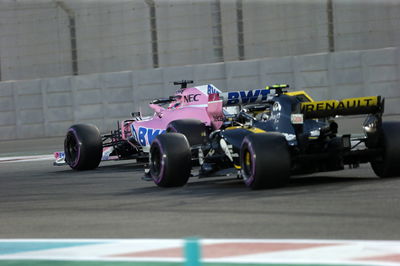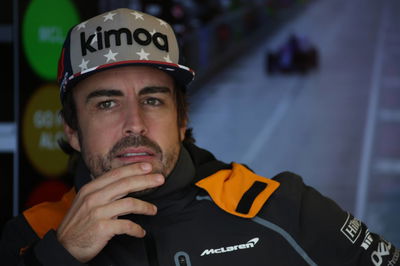Renault: New regs won’t make ‘massive difference’ to racing
Renault doubts Formula 1’s new aerodynamic regulations will make a “significant change” to the quality of racing in the 2019 season.
A set of rule changes have forced F1 teams to design all-new aero for 2019, with the revised regulations aimed at improving overtaking through introducing simplified components - most notably towards the front-end of the cars.

Renault doubts Formula 1’s new aerodynamic regulations will make a “significant change” to the quality of racing in the 2019 season.
A set of rule changes have forced F1 teams to design all-new aero for 2019, with the revised regulations aimed at improving overtaking through introducing simplified components - most notably towards the front-end of the cars.
F1 sporting chief Ross Brawn is optimistic the sport could see a 20 percent improvement in the quality of wheel-to-wheel action this year, though Renault is among a number of teams to have expressed concerns.
“Overall we were against this regulation change,” said Renault executive director Marcin Budkowski.
“Initially we voted against it and we made that public at the time because we didn’t believe it was going to reach the objectives that it was set to reach, which is to ease overtaking.
“We think it will go in the right direction a little bit, but we don’t think it’s going to make a significant change. We felt it was a lot of resources and a lot of money, a lot of last minute work that had to be done for a very unclear objective. On paper it is the right direction and some of the work that’s happening for 2021 is along a similar line.
“The difference is going to be smaller in terms of aerodynamic performance - whether that is actually going to translate onto the track into easier overtaking and easier following, in our opinion it’s going to be fairly small.
“But if that’s not the case and suddenly we have lots of close following and overtaking then great, we will be happy about that. But in the data I see at the moment, I don’t see a massive difference.”

Renault is hopeful the regulation tweaks will create an opportunity to close up to F1’s leading three teams, which Budkowski believes will have “made a bigger step back” in performance compared to the rest of the grid.
Asked how much of a challenge the new regulations have thrown up, Budkowski replied: “Quite significant. They are not as big as the massive regulation changes we had in 2009 and 2017 with the new aero because they are more localised.
“The other challenge was that they came pretty late. They were effectively validated on the last day of when the regulations can be changed but even after that they evolved because they were imperfect because they were rushed through.
“There was a lot of collective work from the teams to bring them to a state that was good enough to actually have regulations for everybody that didn’t have loopholes in. Even since we’ve had a number of TD’s [technical directives] that came out clarifying some of the areas of the regulations.
“So it’s been a bit of a moving goalpost really. It has been challenging for everybody but we are getting there now. I think we have a decent understanding of the regulations.
“They have been voted in and they are the same for everybody. We are up for the challenge and hopefully it will allow us to make a step but we will find out when we see the results and the work of the other.”












